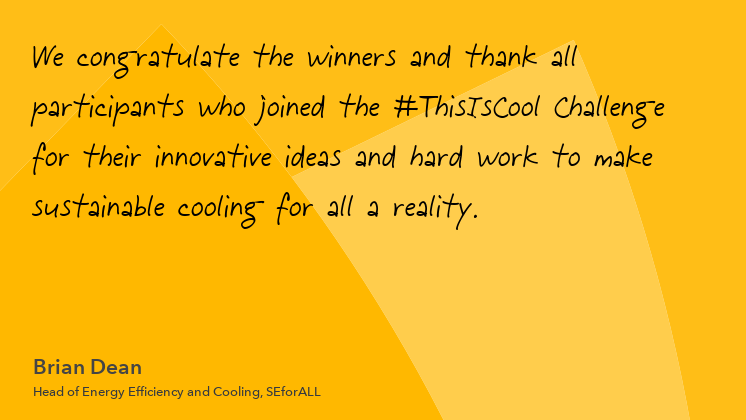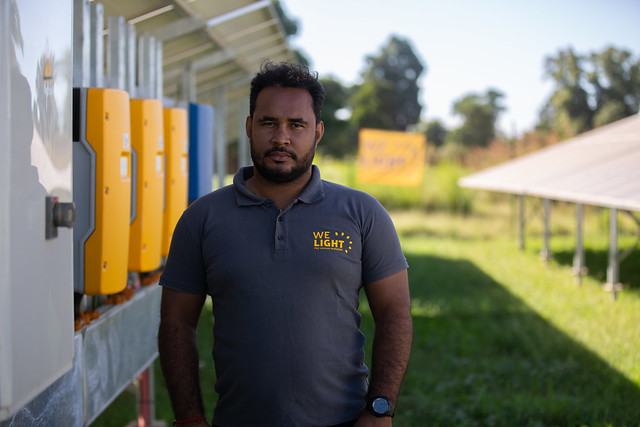#ThisIsCool Youth Innovation Challenge winners announced at COP27
Find out more about the three winners and their innovations:
Solar Freeze offers post-harvest solutions for small-scale farmers. The affordable solar cold storage rooms and IT solutions help prevent food waste and increase the farmers' income. These cold rooms are made of used shipping containers and use an innovative and efficient forced-air evaporative cooling system. They can be either fully owned and operated by the local communities through micro-franchising or used based on an affordable pay-as-you-store model.
Solar Freeze has participated in mentoring and training 100 young women aged 18-29 years through a program called "Each One, Teach One - Train to Earn", where rural youth learn how to operate and repair the Solar Freeze units.
Miti Mitaani ("Trees in our Neighbourhood") is a social enterprise at the forefront of mitigating climate change and fighting excess heat in cities with urban trees. Trees are an affordable, accessible cooling solution that reduces the ambient temperature up to 8 degrees and helps fight climate change.
Miti Mitaani combines climate intervention with livelihood creation. It provides viable work for low-income youth in urban centres and training on ecological best practices. In a pilot launched in August 2022, youth groups earn a monthly income based on the number of trees planted and the survival of those trees. The pilot's goal is to refine the program design to scale this intervention to more groups and other cities.
The Smart Cold Chain Monitoring System uses innovative tracking technology to prevent post-harvest food and pharmaceutical waste. It consists of a smart sensor device that records temperature, humidity, particulate matter, and location during cold chain transit and communicates the data in real-time. Users can place the device in vehicles, shipping containers and cold storage rooms.
The company currently operates in Nigeria and plans to expand throughout Africa.
Watch the video of the presentations on the SEforALL COP27 platform (10 November).
Stay tuned for competitions coming up in 2023: follow #CoolingforAll and subscribe to the Cooling for All newsletter


